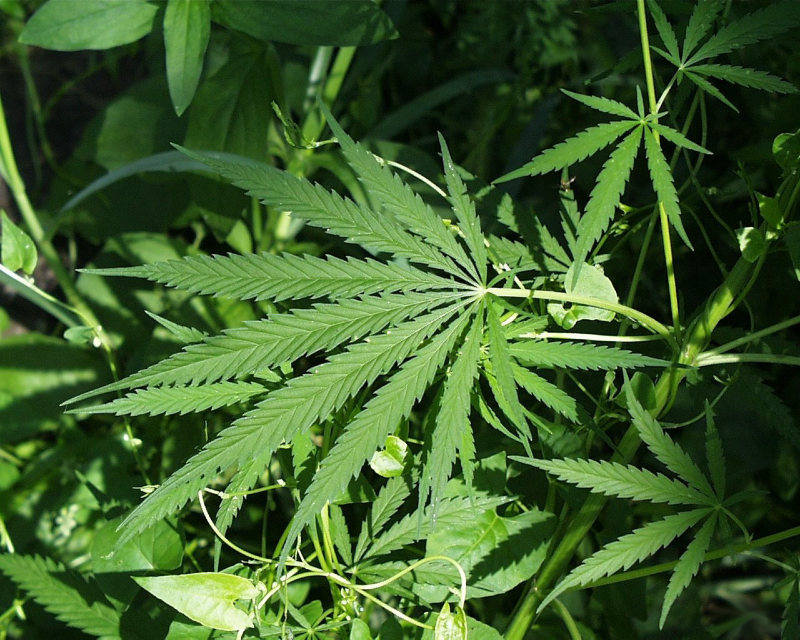Volkow, Nora D., Baler, Ruben D, Compton, Wilson, M., and Weiss, Susan R.B.
Adverse Health Effects of Marijuana UseCar Safety
N ENGL J MED 370;23, 2219-2227

Today we reviewed an article in the New England Journal of Medicine entitled “Adverse Health Effects of Marijuana Use”. Here the authors make the following understatement, “The popular notion seems to be that marijuana is a harmless pleasure, access to which should not be regulated or considered illegal.”
Since legalization of marijuana has become an election year theme, I thought it time to review what we know about marijuana, its uses, abuses and harmful side effects. This article contains a table of Adverse Effects of Short-Term and Long-Term Use. Effects of Short-Term Use include, “Impaired short-term memory affecting learning; Impaired motor coordination (increasing the risk of automobile accidents and injuries); Altered judgement and in high doses paranoia and psychosis.”
Effects of long-term or heavy use include; “Addiction (in about 9% of users overall, 17% of those who begin use in adolescence, and 25 to 50% of those who are daily users); Altered brain development, Poor educational outcome and increased likelihood of dropping out of school; Lower IQ (especially) among those who were frequent users during adolescence, Diminished life satisfaction and achievement compared with such ratings in the general population; Symptoms of chronic bronchitis; increased risk of chronic psychosis disorders (including schizophrenia) in persons with a predisposition to such disorders.”
Marijuana is addictive and has an associated withdrawal syndrome. Indeed a 2012 National Survey on Drug Use and Health estimated 2.7 million people 12 years of age and older met the criteria for dependence on marijuana. Marijuana use is especially concerning in adolescence as “compared with unexposed controls, adults who smoked marijuana regularly during adolescence have impaired neural connectivity (fewer fibers) in specific brain regions.”
The brain regions affected are involved in learning and memory, alertness, self-conscious awareness, and the development of habits and routines. This affect is “particularly prominent if use starts in adolescence or young adulthood which may help to explain the finding of an association between frequent use of marijuana from adolescence into adulthood and significant declines in IQ”. In addition, “heavy marijuana use has been linked to lower income, greater need for socioeconomic assistance, unemployment, criminal behavior, and lower satisfaction with life.”
There are conditions with symptoms that may be relieved by treatment with Marijuana and include, Glaucoma, Nausea associated with chemotherapy, AIDS associated with anorexia and wasting syndrome, Chronic pain, inflammation, Multiple sclerosis and Seizures in children. These are all promising areas of medical use, however marijuana’s substantial adverse effects should make any prudent person pause before considering legalizing this drug, which will increase its availability and use and “by extension, the number of persons for whom there will be negative health consequences.”
MacKoul Pediatrics is an amazing local pediatrics office in Cape Coral, FL where caring, compassionate doctors and nurses work with you to keep your children as healthy as possible. MacKoul cares for children from birth to college age, from Cape Coral, Fort Myers, Naples, and beyond.
August 8, 2014
![[IMAGE]](images/858_ncqa_logo_centered.png)
 Today we reviewed an article in the New England Journal of Medicine entitled “Adverse Health Effects of Marijuana Use”. Here the authors make the following understatement, “The popular notion seems to be that marijuana is a harmless pleasure, access to which should not be regulated or considered illegal.”
Today we reviewed an article in the New England Journal of Medicine entitled “Adverse Health Effects of Marijuana Use”. Here the authors make the following understatement, “The popular notion seems to be that marijuana is a harmless pleasure, access to which should not be regulated or considered illegal.”